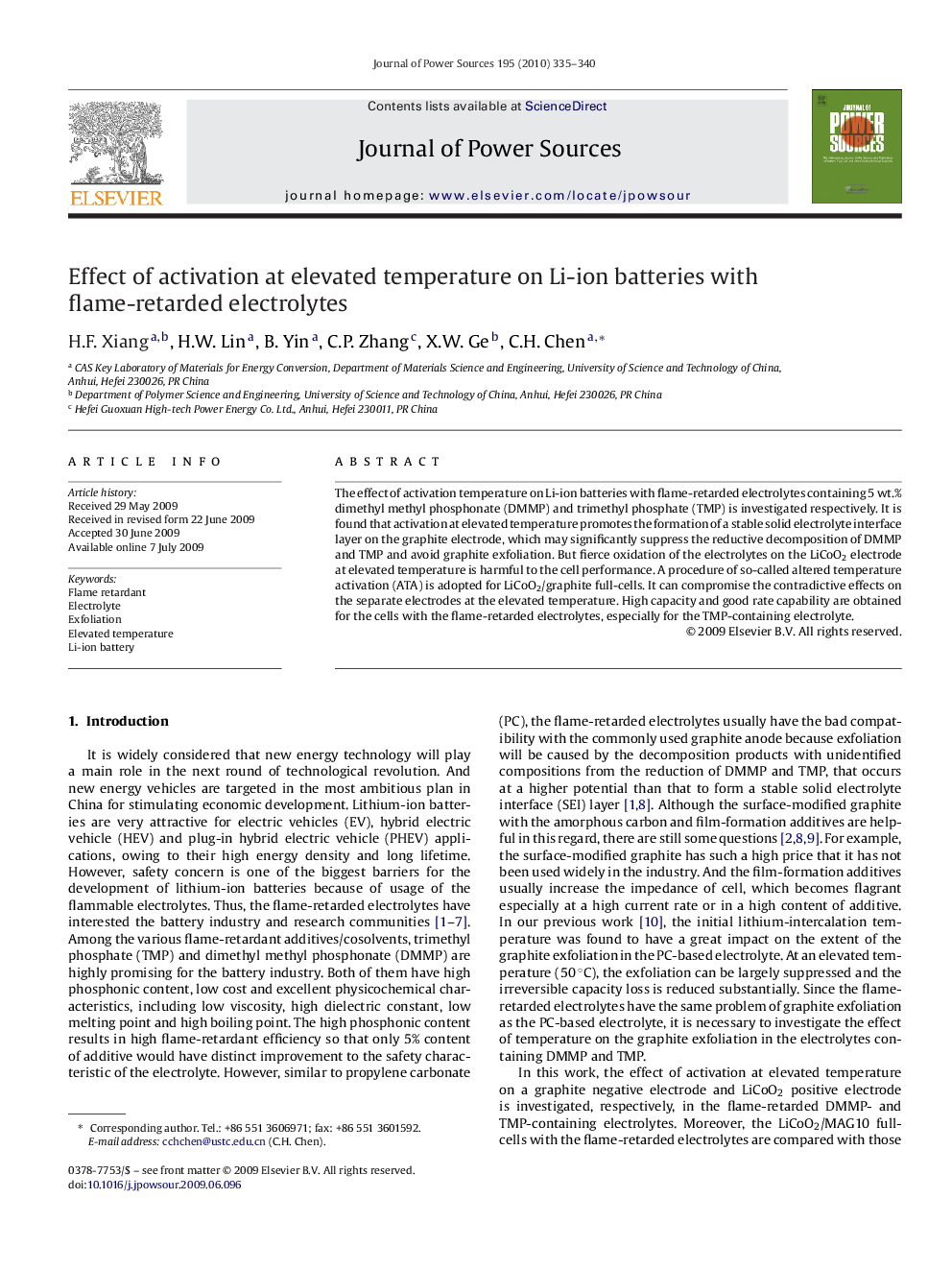| Article ID | Journal | Published Year | Pages | File Type |
|---|---|---|---|---|
| 1293988 | Journal of Power Sources | 2010 | 6 Pages |
The effect of activation temperature on Li-ion batteries with flame-retarded electrolytes containing 5 wt.% dimethyl methyl phosphonate (DMMP) and trimethyl phosphate (TMP) is investigated respectively. It is found that activation at elevated temperature promotes the formation of a stable solid electrolyte interface layer on the graphite electrode, which may significantly suppress the reductive decomposition of DMMP and TMP and avoid graphite exfoliation. But fierce oxidation of the electrolytes on the LiCoO2 electrode at elevated temperature is harmful to the cell performance. A procedure of so-called altered temperature activation (ATA) is adopted for LiCoO2/graphite full-cells. It can compromise the contradictive effects on the separate electrodes at the elevated temperature. High capacity and good rate capability are obtained for the cells with the flame-retarded electrolytes, especially for the TMP-containing electrolyte.
